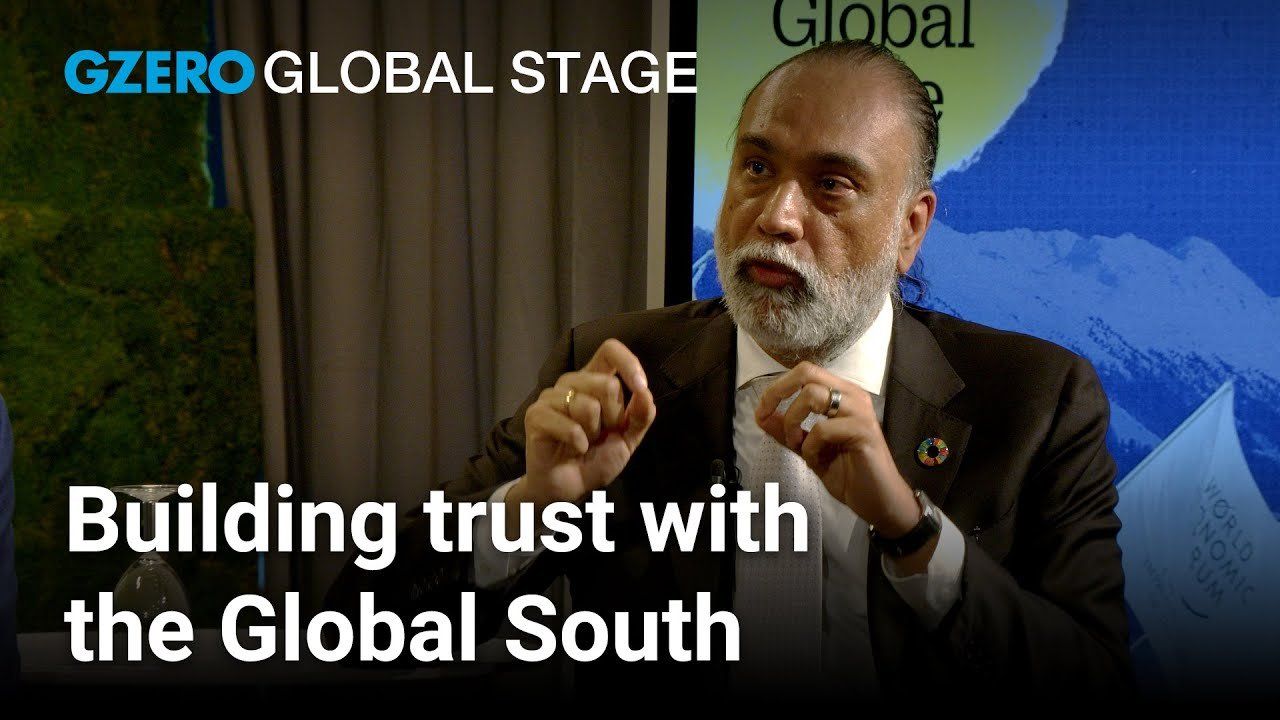Digital Governance
AI is an opportunity to build trust with the Global South: UN's Amandeep Singh Gill

AI presents opportunity to build trust with the Global South | Global Stage

AI is a test case for addressing the ballooning trust deficit with the Global South, says the UN Secretary-General's special technology envoy Amandeep Singh Gill. If the Global South is not included meaningfully, it will widen the gap, with real geopolitical implications.
At a GZERO Global Stage discussion broadcast from the 2024 World Economic Forum in Davos, Switzerland, Gill warns that we can equitably spread the benefits of AI only if we step outside current business models, working with the Global South to integrate more practices like public-private partnerships. If we're truly serious about bridging the digital divide, says Gill, "we need to work together on those issues. That'll build you the trust with the Global South."
The conversation was part of the Global Stage series, produced by GZERO in partnership with Microsoft. These discussions convene heads of state, business leaders, technology experts from around the world for critical debate about the geopolitical and technology trends shaping our world.
As expected, the Supreme Court struck down the bulk of Donald Trump's sweeping “Liberation Day” tariffs as illegal … and almost nothing changed.
Chris, an Army veteran, started his Walmart journey over 25 years ago as an hourly associate. Today, he manages a Distribution Center and serves as a mentor, helping others navigate their own paths to success. At Walmart, associates have the opportunity to take advantage of the pathways, perks, and pay that come with the job — with or without a college degree. In fact, more than 75% of Walmart management started as hourly associates. Learn more about how over 130,000 associates were promoted into roles of greater responsibility and higher pay in FY25.
Somewhere in the Donbas region, Ukrainian soldier Artem Bondarenko says he hasn’t slept through the night in months as he defends Eastern Ukraine.
In the latest episode of Vladimir Putin and Xi Jinping's hit wellness podcast This Authoritarian Life, we learn how positive communication patterns can break negative cycles in our relationships -- especially our relationships with Iran, Syria, Venezuela, and Cuba. #PUPPETREGIME